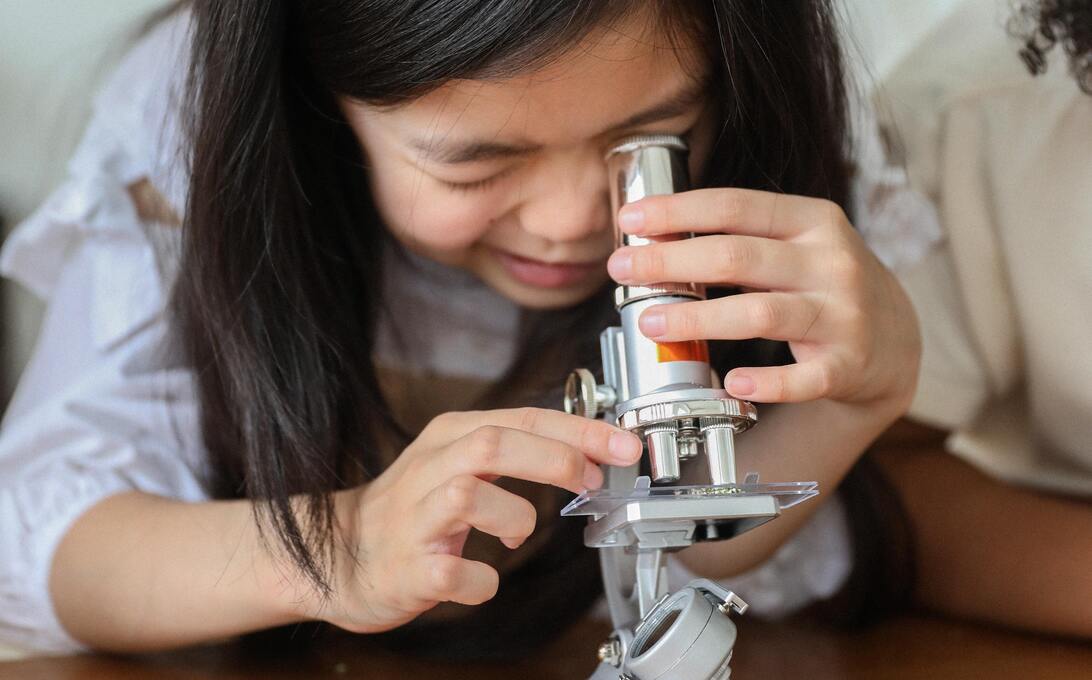How to tutor Science online?
Elton Rodrigues 3 min read

📈 Here’s how to tutor Science online effectively
- Have great resources
- Relate Science to real-life examples and experiments
- Visualize with diagrams and pictures
- Focus on logical thinking and clear explanations
- Show your student why they’re learning
In today’s digital era, online tutoring offers a convenient way to help students excel in Science. Due to Science’s logical and stepwise nature, it’s one of the best subjects to tutor online, and demand is generally high year-round. If you’re tutoring Science online, it’s important to engage your students in a way that goes beyond textbooks. In this article, we’ll explore actionable tips to make your online Science tutoring sessions interactive and exciting, helping you to inspire your students while promoting critical thinking
📚 Have great resources
In a similar fashion to Maths and English, it’s important to have a good collection of helpful resources when tutoring Science online. You can find useful content and practice problems for various topics up to an early undergraduate level with a quick Google search. Look for trusted local sources like schools and education departments when choosing problem sets to work on with your student. Keep in mind that the closer the resources match the specific curriculum, the better. However, remember that Science is universal, so even if you use a resource from a different country, it can still be valuable. Once your student understands a concept, focus on exercises that align with their curriculum to help them improve their exam performance
🎡 Relate Science to real-life examples and experiments
The best thing about Science is that it’s all around us. Make Science more relatable and engaging by bringing real-life examples into your online tutoring sessions. Encourage your students to try simple experiments at home or show virtual demonstrations so they can see or feel what they’re studying
When I was in high school, we were studying circular motion in physics class. My teacher wanted us to understand the difference in reactionary force at the top and bottom of a Ferris wheel. Before doing any maths, he asked us to fill buckets with water up to 30%, go outside, and swing them as hard as we could. I distinctly remember feeling the varying reactionary force on my arm at the top and bottom. Once I’d felt that, the maths made so much more sense. When it came to exam time I didn’t even have to study it —it became second nature to me
You can create similar experiences for your students to try at home, even during virtual tutoring. Instruct them to conduct experiments that allow them to feel the Science. For example, ask them to design and conduct an experiment to measure the acceleration of gravity or compare the conductivity of different metals. Then, have them present their process and findings during the next lesson. That’s what Science is all about - using logic and conducting tests to explore and understand our world. Science is interesting, and fun when taught this way so don’t let your student learn it only from a textbook
📐 Visualize with diagrams and pictures
Visual aids are great for making complex Science ideas simpler. Science questions usually give students lots of information, which traps students who try to visualize everything in their heads. Teach your student to create simple diagrams to break down the question. This is also especially helpful since diagrams can also earn them process marks points, even if they don’t know the answer in an exam. This is where a purpose-built online whiteboard for education like Kedyou can be of massive value to your tutoring. Keyou’s purpose-built tools and lag-free multi-input workspace can help you draw diagrams collaboratively with your student and make your lessons more interactive
🧠 Focus on logical thinking and clear explanations
In Science, logic plays a crucial role. Teach your students how to set out answers clearly and formulate explanations. Set high standards about question presentation, and make sure your student clearly documents their thought process and the steps taken to solve the problem. It may seem strict, but it’s better to help them build good habits before exams than have them lose marks
Encourage your students to think critically by questioning concepts and theories and frequently check for understanding by asking them to explain their reasoning. When your student encounters something they don’t know, instead of giving them the answer, encourage them to try and reason their way to a solution. Guide them along the process, and allow them to make a few logical missteps before intervening. This approach helps them recognize their own mistakes when they get stuck. Then teach them how to backtrack and identify the point where they made the wrong logical assumption. Point out their error and then let them continue. While challenging initially, once they learn to reason logically from what they know, they will greatly benefit in exams and in life
✈ Show your student why they’re learning
Science is motivating because its concepts are often directly connected to things we know, use, or have seen in action. Therefore, it’s essential not only to teach your students the content but also to show them how and where it applies in the real world.
For example, when teaching about distillation, explain how it’s a process used in industries to collect salt or purify water. When discussing blood flow to the skin, explain why their skin turns bluer in the cold as their blood vessels contract to keep blood away from the cold environment. When covering torque, break down how it influences road design to prevent friction rollover accidents. By highlighting these practical applications, you can motivate your students by showing that their understanding can solve real-world problems
